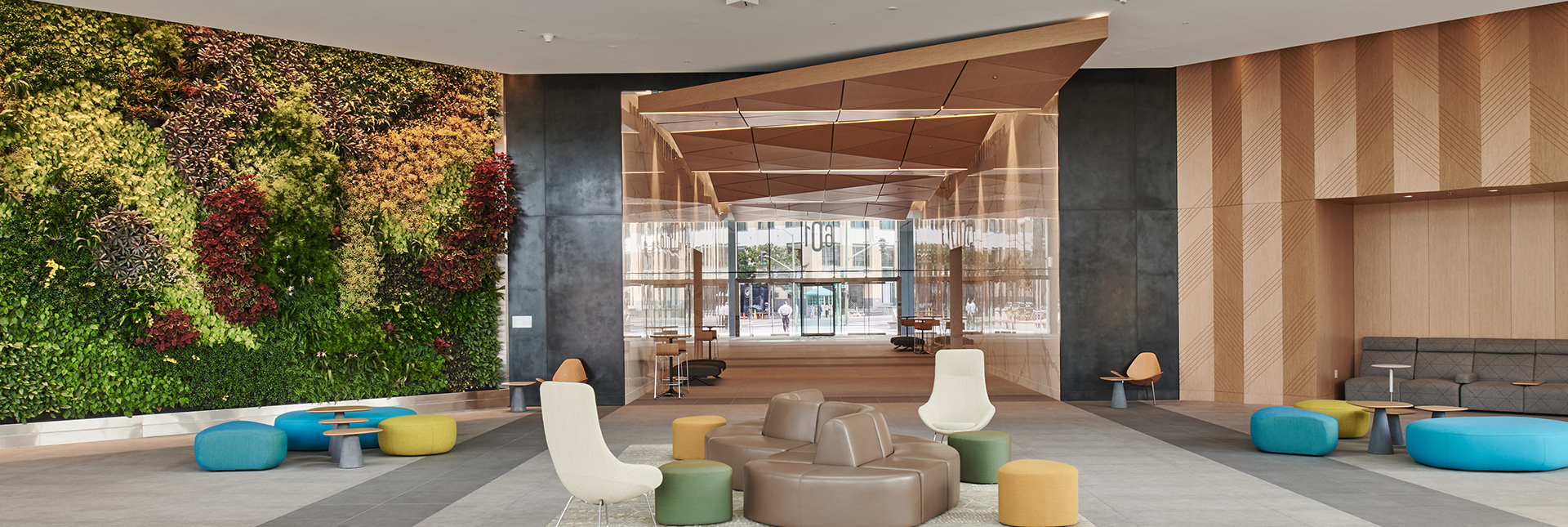Fire Prevention
Inspection Suggestions
While everyone needs to know how to respond in an emergency, it is also important to take steps to prevent emergencies from occurring. We recommend a monthly Fire Safety Inspection including, but not limited to, the following items:
Move flammable or combustible supplies off-site. If your Lease provides that chemicals or materials be stored on-site in quantities requiring MSDS sheets to be posted, they must be posted in central locations where they are visible to all. Flammable liquids should be kept in a flammable cabinet. Avoid using extension cords instead of permanent wiring. If used, extension cords need three-prong connections and no multiple outlets. Use breaker strips. All UL Listed authorized appliances and electrical cords should be in good repair. All electrical appliances for coffee, cooking, or heating should be turned off every day before leaving the office. No smoking.
Candles or open flames are not allowed in the building at any time. Potential fire hazards including, but not limited to, blocked stairwells, faulty fire protection equipment, leaks, or damaged wiring should be reported to the Building Management Office immediately. Building Management does not allow space heaters, as they are a fire hazard. Please contact the Building Management Office if you are cold in your office. All emergency contact lists, physically impaired employee lists and other critical information lists should be kept current. Evacuation procedures should be reviewed among Suite Monitors for appropriateness, on a regular basis. Procedures should be communicated to occupants in your assigned area at least quarterly.
Do not accumulate quantities of discarded files or other paper trash in your office or storage area. Pay special attention to housekeeping in those departments that produce quantities of debris, such as duplication machines, mailing and receiving rooms.
Do not store large quantities of flammable solvents, duplicating fluids, or other combustible fluids.
Keep electrical appliances in good repair. Report unsafe conditions to the building office.
When furnishing an office, consider the fire potential of materials used in large amounts, like overstuffed chairs, settees, couches, or anything that could become a combustible item. Such furnishings should be flame-proofed.
Where the potential for fire is especially high, such as supply rooms, tenants may wish to consider installing additional fire extinguishers. Additionally, items being stored must maintain an 18” clearance between those items and the ceiling.
Windows
In the event of a fire condition, windows should not be opened except for emergency ventilation. An open window supplies oxygen or fuel to the fire and a fire will burn towards an oxygen supply. If time or situation permits, windows and doors should be closed to isolate and contain the fire. However, the most important recommended procedure is to vacate the fire area immediately.
Fire Safety with Christmas Trees
Christmas trees pose a major fire hazard if the proper precautions are not taken. Below are guidelines provided by the Fire Department. This list does not represent all the precautions and requirements, so before displaying any Christmas tree or ornament with lighting, please request the complete set of guidelines from the Fire Department. All artificial trees should be UL approved or labeled as flame-retardant/resistive by the manufacturer. Decorations on trees must also be non-flammable.
Lights on Christmas trees must be UL listed. Small, low-temperature bulbs are recommended. No candles or open flames are allowed on, or in the vicinity of, the tree, including portable heating devices. All tree lights should be turned off nightly. Live or cut trees must be watered and monitored. If a cut tree becomes too dry it must be removed promptly. Cut trees must also be disposed of properly via one of the numerous local organizations that offer services during the holidays. Do not dump cut trees in the trash enclosure.
